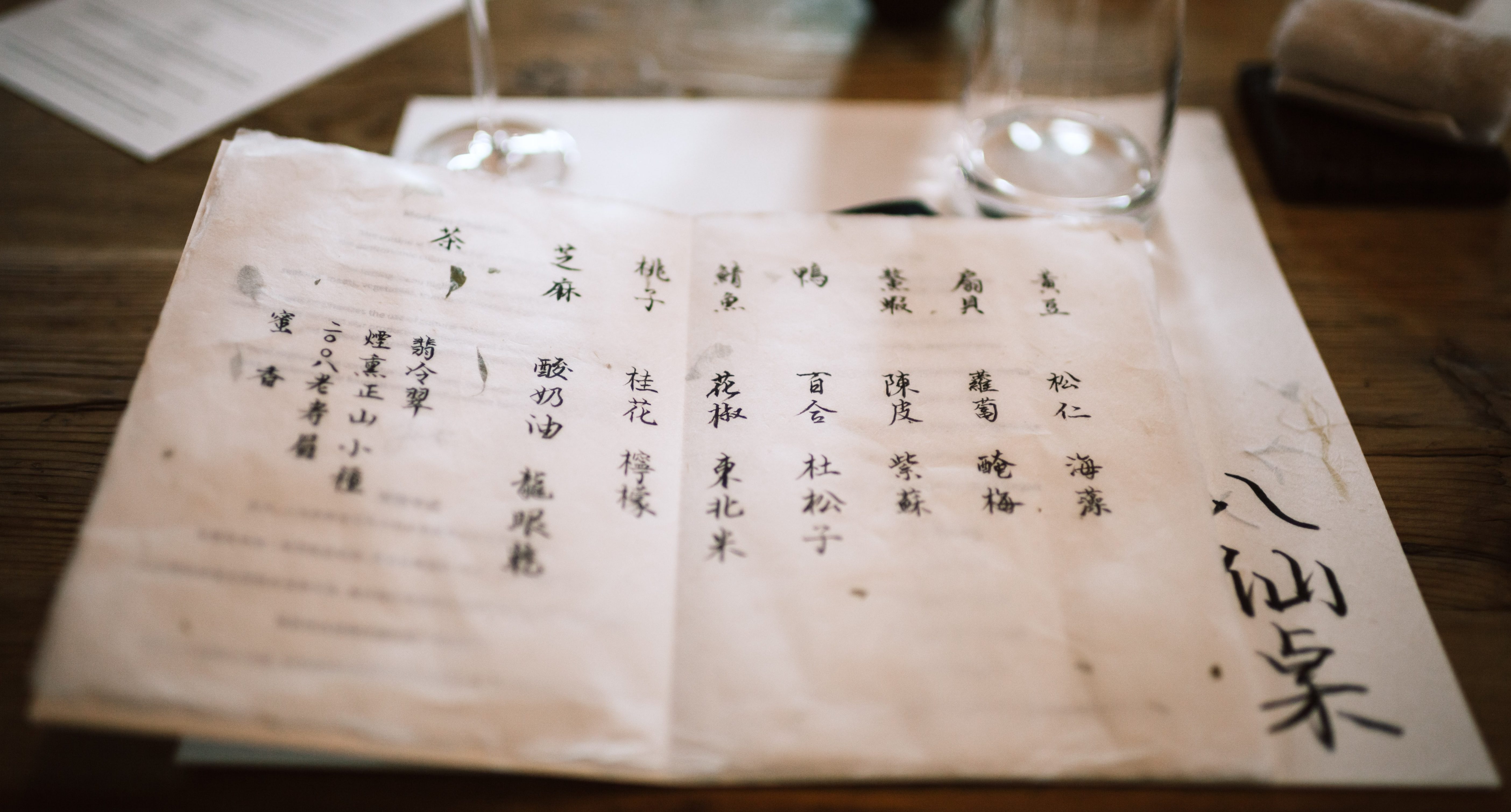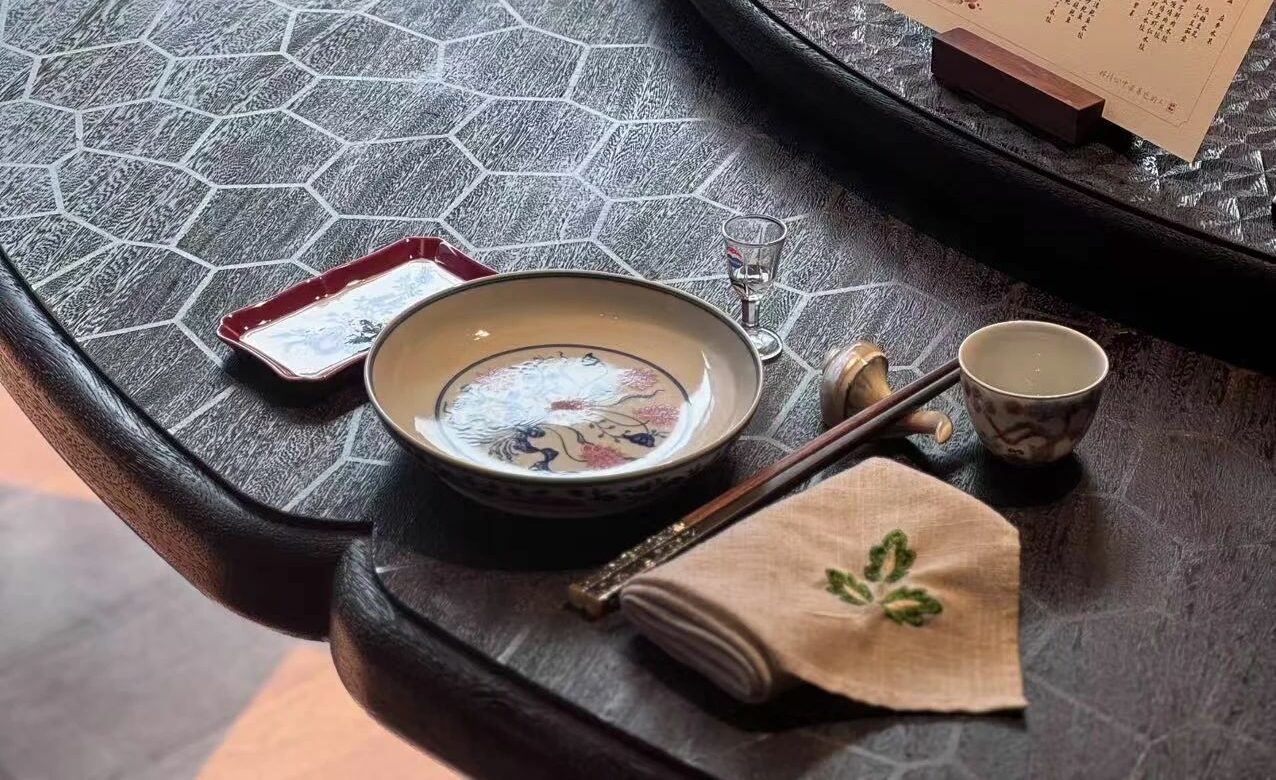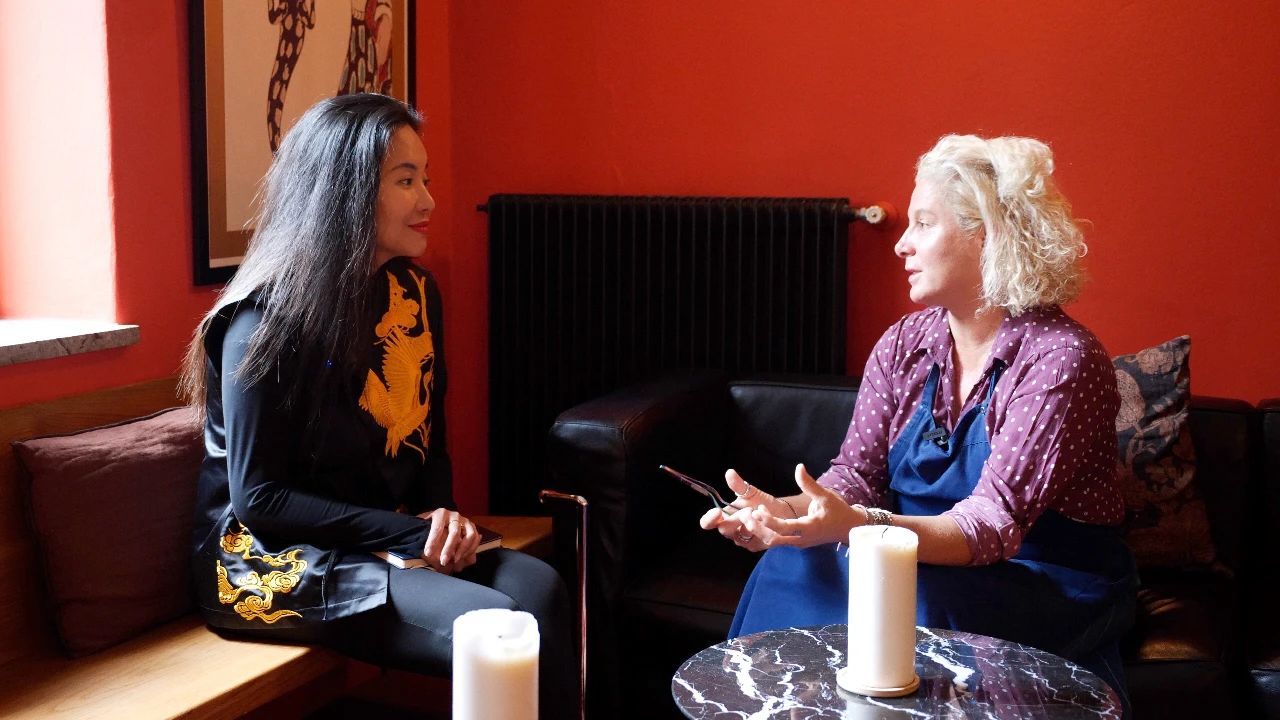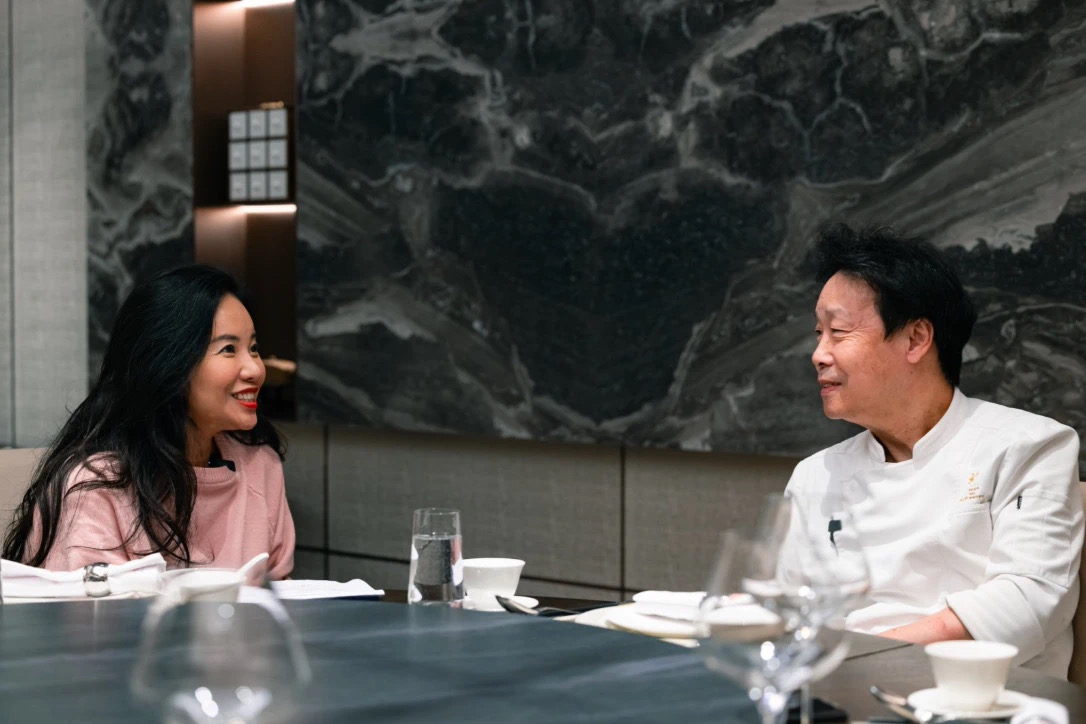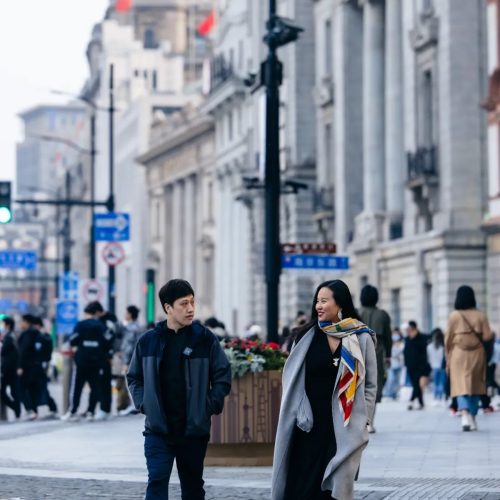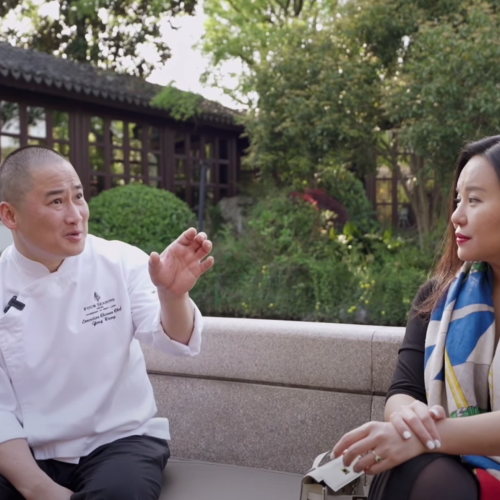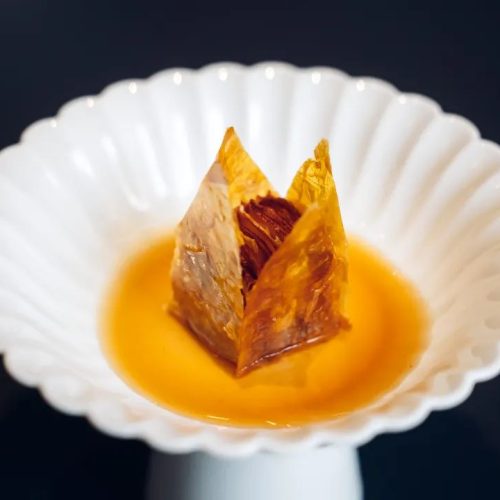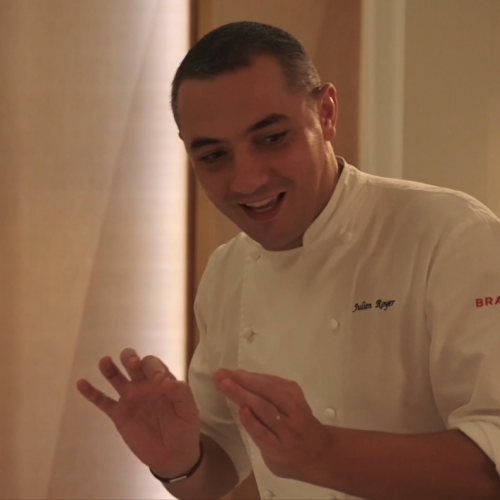Author/photo: Emma Li
Translator:Juliette Zhu
Modern Chinese is the theme at the latest season of supper club concept “Table for Eight,” which was created by Ms. Wenye Li in 2014. Upon entering the yet-to-open new location of Uncle No Name (oh yes, that vague thrill of trespassing,) guests are welcomed with a champagne glass of sparkling tea as part of the tea pairing. Folded into the printed English menu is a sheet of papyrus, on which the Chinese version is scribed in an elegant hand.


The 7-course dinner, created by Mr. Johnston Teo, the former chef of The Pine at Ruijin, is eloquent, nourishing, and more polished than we might expect a 10-night pop-up to be. Mr. Teo deftly avoids turning the meal into a show-and-tell of what inspirations he drew from classic Chinese cooking; instead, his earnest menu is both subtler and more obvious in its Chinese inflections.

Obvious, because the menu is unmistakably attached to carbs. A warm steamed bun tinged a light yellow with house-cured egg yolk is there for us to wipe up an exquisite langoustine sauce. A golden fried taro fragrant with chives appears beside an immaculately pink duck breast. A bowl of rice makes full use of that soaring Sichuan pepper sauce pooled around a fillet of mackerel, which immerses the senses in an ethereal, floral waft before tickling the tip of the tongue with just the barest tingle of heat.
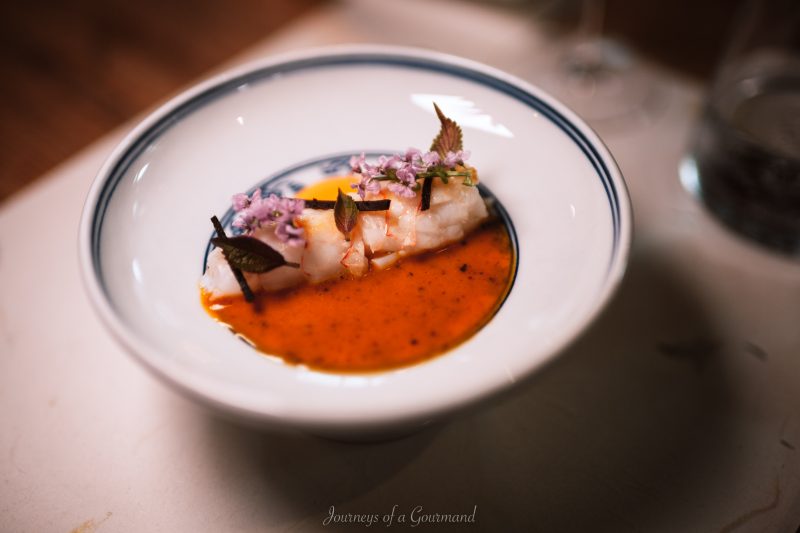
Langoustine, aged tangerine peel, perilla

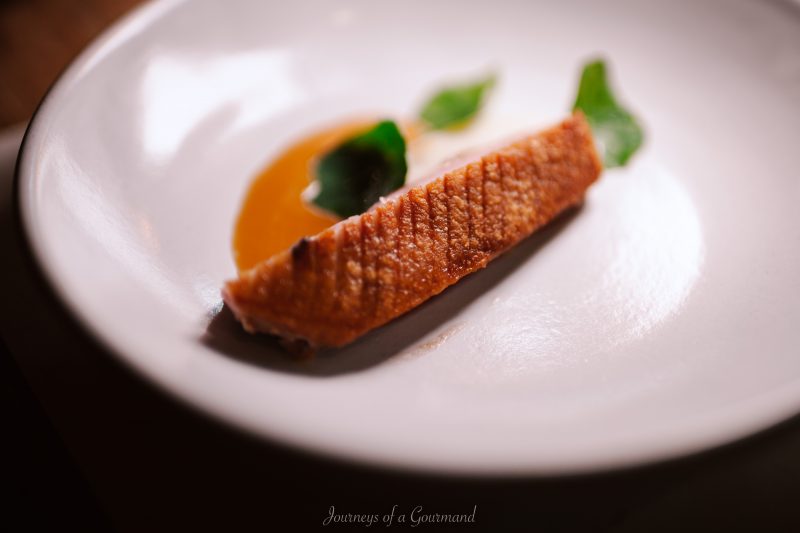
Duck, lily bulb, juniper



Mackerel, Szechuan pepper, Dongbei rice
And subtle, because hidden in the crevices of Mr. Teo’s French training are flickers of familiar flavors that rise up and greet us like old friends: a comforting soybean depth that permeates a delicate custard; the whispers of salted plum or aged tangerine peel that unfurl from the rounded sauces; a dessert of crystalized sesame and dried longan that is at once entirely novel and uniquely nostalgic.

Soybean, pine nut, seaweed

Scallop, radish, preserved plum

Sesame, crème fraîche, dried longan
I won’t spoil everything for you here. Suffice it to say that this is one of the most original and thoughtful dining experiences I have encountered in Shanghai. So instead of a play-by-play of the menu, I went behind the scenes and talked with Johnston and Wenye about how this season’s Table for Eight came to be.

Table for Eight team: Wenye Li, Stephanie Wu, Johnston Teo, Carol Chiu, Zoé Chen
Photo courtesy of Table for Eight
Emma: Tell us about how you came to join Table for Eight.
Johnston: I’ve known Wenye since I first came to Shanghai last year; she was one of my diners, and we kept in touch afterwards. I have always liked her Table for Eight concept of doing pop-ups with different themes at different venues. When I started contemplating the idea of “modern Chinese,” I thought she might be interested, so I approached her and we started discussing how we could work together.
E: What is your interpretation of “modern Chinese”?
J: When you look at all these great cuisines — French, Italian, Japanese — there is a classic version, and then there is a modern version. But with Chinese cuisine, there aren’t really a lot of people doing a modern version.
So we look at the entirety of how Chinese people eat, and try to render that into a modern production. With a tasting menu format, we can present a full, carefully sequenced experience, similar to the flow of a Japanese or European tasting menu.
We try to source locally when we can, but ultimately, we choose whatever ingredient produces the best dish. We don’t restrict ourselves to Chinese ingredients, because that isn’t the heart of what a Chinese meal is. A lot of modern French restaurants use almost entirely Japanese ingredients — Hokkaido scallops, Miyazaki Wagyu — but it still feels like a French meal, because the DNA is French, because the flow of the meal draws on our flavor memories of a traditional French meal. We want to do the same with modern Chinese cuisine.
E: I guess that’s why rice has always featured prominently on your menus, because it is such an integral part to a Chinese meal?
J: Exactly. Rice is something we all grew up eating, so it gives our diners a comfort zone within the menu.
As chefs, we need to offer diners a balance between familiar and unique. Even when you go to some of the most innovative, avant-garde restaurants in the world, like Gaggan or Mugaritz, there is always a very basic dish that is grounding and comforting among all the new and experimental food — rice is that dish for us.

E: You helmed the opening of The Pine at Ruijin last year with some of the most expressive and engaging cooking that I have seen in Shanghai. You left the restaurant earlier this year in January. Why?
J: I moved to Shanghai from Singapore and joined The Pine because I wanted to live in a country with four seasons. I was really excited by the prospect of working with the natural seasonality of produce. I also wanted to reconnect with my Chinese heritage. Up until that point, I had always been cooking French cuisine throughout my career, even though I grew up eating rice and drinking tea.
The first year I was in Shanghai, I tried to rediscover my Chinese heritage, but it wasn’t really working out in terms of how much I actually understood the whole culture of China. There was a lot for me to learn, and I realized that I had to stop and take some time to travel, and to experience firsthand the culture and food around China.
E: So you went on to travel a great deal in the last few months. Tell us about your journey.
J: I went to Zhejiang, Sichuan, Yunnan, and Guangdong, which were the most fascinating for me out of all the amazing cuisines in China. Whatever money I had, I spent it to travel, learn, and eat.
I ate classic Chinese food at their places of origin, and compared those flavors to my previous impressions of these dishes, which were sometimes very different. I bought as many ingredients as I could and practiced cooking classic Chinese dishes, because I wanted to learn the fundamentals before I started experimenting with modern Chinese.
Then, when I came back to Shanghai and we started Table for Eight, we tested out what I learned in the previous few months, and reapplied that knowledge to our vision of modern Chinese cooking.

Emma: You went to New York to learn about wine a few years ago, yet for this Table for Eight, you chose to offer tea pairing instead. Why is that?
Wenye: It was actually Johnston who suggested tea pairing, which, of course, fits neatly into our concept of modern Chinese dining. But tea pairing is a very new idea which only a few restaurants around the world have adopted. So it is exciting territory for us, but also challenging.
We are lucky to have a wonderful tea master, Ms. Li, who basically introduced us to the world of teas and showed us how tea can enhance our experience of food. She helped us test and fine-tune our tea selection over several weeks, and gave us a lot of support throughout the whole process.


E: What brought Table for Eight to Uncle No Name?
W: I met Ben, Uncle No Name’s owner, through my friend Zoé, who is also my longtime partner and pastry chef for Table for Eight. She makes cakes and pastries for Uncle No Name’s Yongkang Lu location. When that shop expanded, we came to realize that the new room on the second floor was perfect for Table for Eight, so we did our first collaboration with Ben and held three events in that space.
Ben has always been exceptionally supportive of Table for Eight. He treats Uncle No Name as a platform for talent, so he is very open to handing us the reins and truly showcasing what we want to do, which is extremely rare. And now we’re continuing our collaboration at his new Uncle No Name on Madang Lu.
E: Where do you see Table for Eight going?
W: This year, we will keep doing these pop-ups around modern Chinese cooking at different venues. I find that collaborating with different spaces can create unique experiences and ambiance, which, in turn, flow back into our creative process.
Looking ahead, we want to make Table for Eight a platform for other chefs who are doing interesting things, the same way that Uncle No Name is currently a platform for us. Part of our inspiration comes from Restaurant Ikarus in Salzburg, Austria, which hosts a different guest chef each month. Johnston will be our hosting chef, and we will try to bring in guests chefs from around the world. This is another side to our ethos of connecting people through food.

Table for Eight is available for 10 nights
by reservation only.
Details below.

Authorized reproduce from Emma的饕餮之旅



